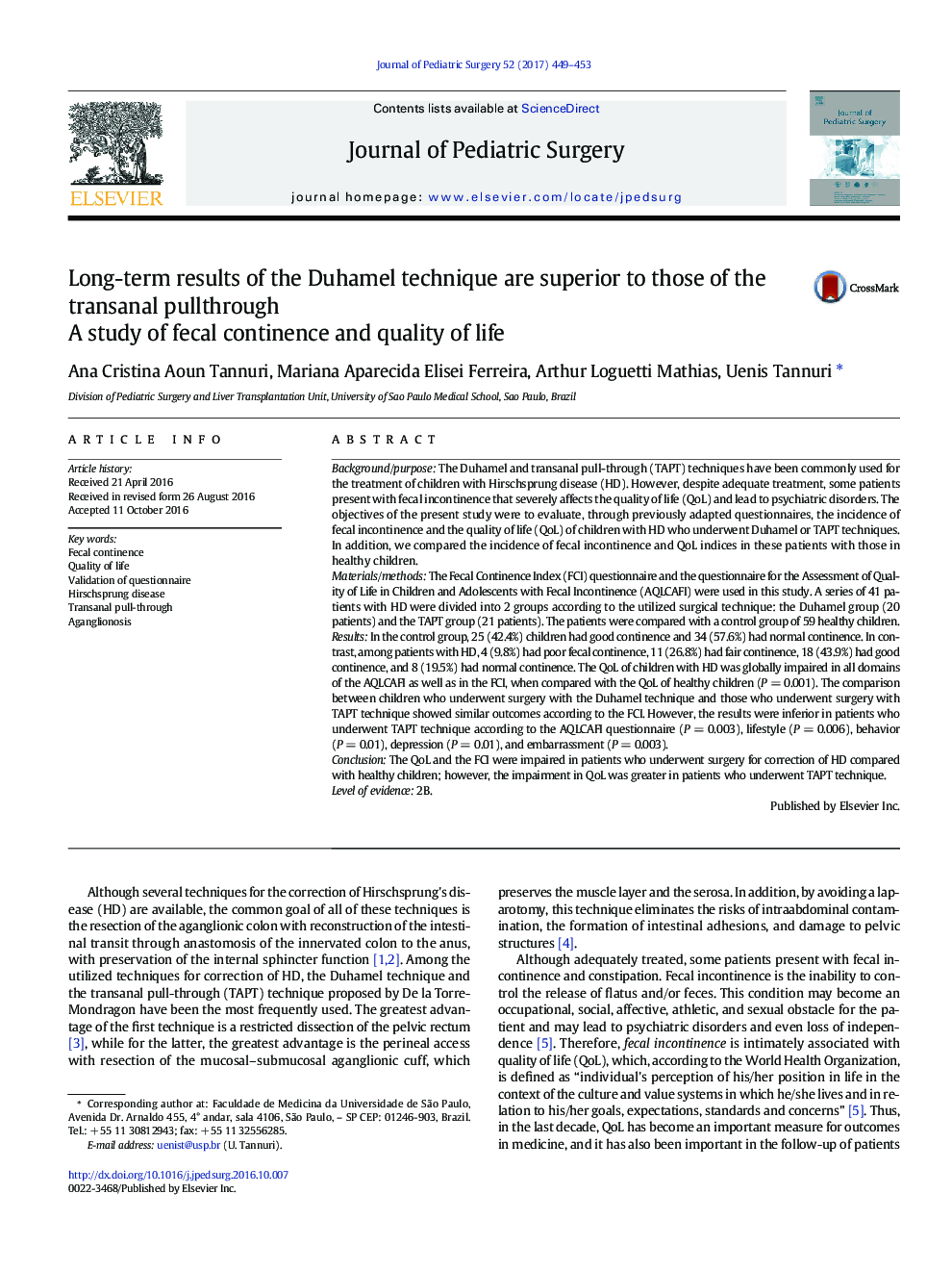| Article ID | Journal | Published Year | Pages | File Type |
|---|---|---|---|---|
| 5718176 | Journal of Pediatric Surgery | 2017 | 5 Pages |
Background/purposeThe Duhamel and transanal pull-through (TAPT) techniques have been commonly used for the treatment of children with Hirschsprung disease (HD). However, despite adequate treatment, some patients present with fecal incontinence that severely affects the quality of life (QoL) and lead to psychiatric disorders. The objectives of the present study were to evaluate, through previously adapted questionnaires, the incidence of fecal incontinence and the quality of life (QoL) of children with HD who underwent Duhamel or TAPT techniques. In addition, we compared the incidence of fecal incontinence and QoL indices in these patients with those in healthy children.Materials/methodsThe Fecal Continence Index (FCI) questionnaire and the questionnaire for the Assessment of Quality of Life in Children and Adolescents with Fecal Incontinence (AQLCAFI) were used in this study. A series of 41 patients with HD were divided into 2 groups according to the utilized surgical technique: the Duhamel group (20 patients) and the TAPT group (21 patients). The patients were compared with a control group of 59 healthy children.ResultsIn the control group, 25 (42.4%) children had good continence and 34 (57.6%) had normal continence. In contrast, among patients with HD, 4 (9.8%) had poor fecal continence, 11 (26.8%) had fair continence, 18 (43.9%) had good continence, and 8 (19.5%) had normal continence. The QoL of children with HD was globally impaired in all domains of the AQLCAFI as well as in the FCI, when compared with the QoL of healthy children (PÂ =Â 0.001). The comparison between children who underwent surgery with the Duhamel technique and those who underwent surgery with TAPT technique showed similar outcomes according to the FCI. However, the results were inferior in patients who underwent TAPT technique according to the AQLCAFI questionnaire (PÂ =Â 0.003), lifestyle (PÂ =Â 0.006), behavior (PÂ =Â 0.01), depression (PÂ =Â 0.01), and embarrassment (PÂ =Â 0.003).ConclusionThe QoL and the FCI were impaired in patients who underwent surgery for correction of HD compared with healthy children; however, the impairment in QoL was greater in patients who underwent TAPT technique.Level of evidence2B.
